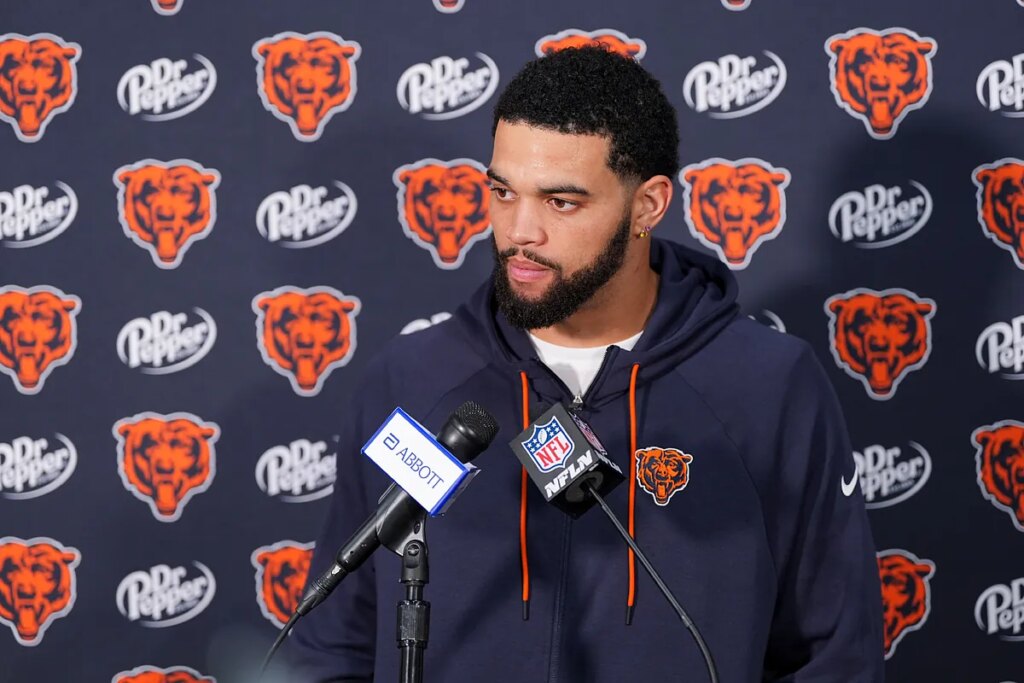Heading into the Monday Night Football spotlight, Caleb Williams and the Chicago Bears delivered a thrilling 25-24 win over the Washington Commanders.
But in the aftermath, headlines didn’t just revolve around the final score – they circled around biting commentary from Troy Aikman, who criticized Williams’ performance harshly.
Aikman, part of the ESPN broadcast team, questioned Williams’ throw placements, suggesting that while many passes were caught, they didn’t always give the receivers room to advance.
He also labeled Williams’ 55-yard touchdown to D’Andre Swift as “lucky.” These remarks drew backlash from fans and analysts, many accusing Aikman of undue harshness.
But an intriguing twist emerged: Williams claimed that their usual pregame production meeting never occurred.
He explained: “I didn’t get to meet with him. [I] tried to meet with him. I reached out and tried to meet and that didn’t happen. And so, I moved on from it, went and played the game, and came out 3-2.”
According to reports, Williams was tied up late at Halas Hall, and by the time he attempted to call, Aikman didn’t answer. The lack of connection added tension to an already fraught dynamic.
What it says about respect and expectations
The breakdown in communication, whether intentional or logistical, fed into narratives of underlying rivalry.
Some speculate that Aikman’s criticism might stem from deeper opinions about Williams’ personality, performance, or status.
Their relationship has never been openly affectionate, and Aikman has been vocal in past critiques.
Williams didn’t just deny the meeting – he also leaned into Aikman‘s “lucky” jab. On social media, he posted a collage of moments from the game and a caption: “‘It was lucky’ – TA ‘Whooptie Doo'”
By turning critique into playful retaliation, Williams signaled he’s paying attention – but not letting it derail him.
In interviews, Williams pushed back on the notion that he’s failing his receivers with weak placements. “At the least, you try to give them a catchable ball,” he said.
“At the maximum, you want to give him the best ball, so he can go run. I think there were opportunities for that. I think there were opportunities we missed. I think there were opportunities that we’ll hit.”
A growing pattern of criticism
It’s not just about one night’s performance. In several broadcasts this season, Aikman has criticized Williams‘ decisions, timing, and approach.
Whether that reflects standard commentary or a harsher lens applied to Williams specifically remains hotly debated.
Still, the public reaction has largely sided with Williams. Many fans and insiders viewed Aikman‘s tone as unfair, especially considering the production meeting omission.
In essence, the ‘beef’ might be as much about respect and access as it is about performance.
At this point, Williams is embracing the noise. By casting the missed meeting as the pivot in their dynamic, he shifted attention away from just stats.
Whether the tension cools or intensifies, one thing is clear: Williams is not backing down.
Read the full article here

